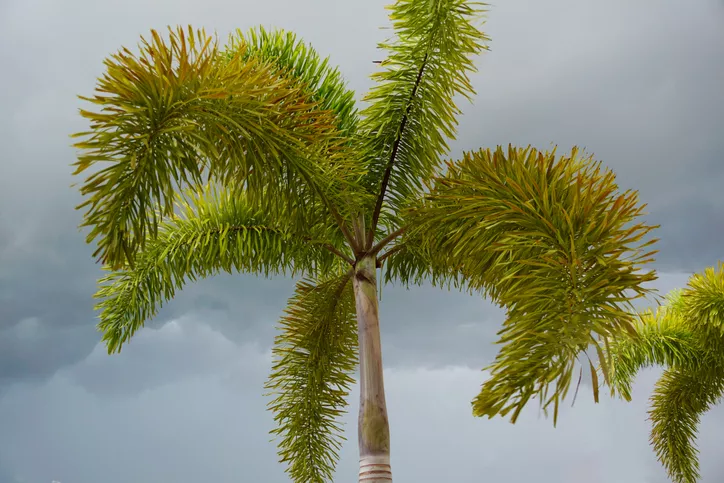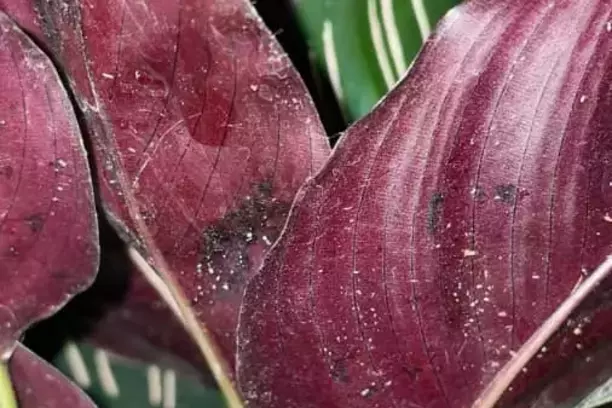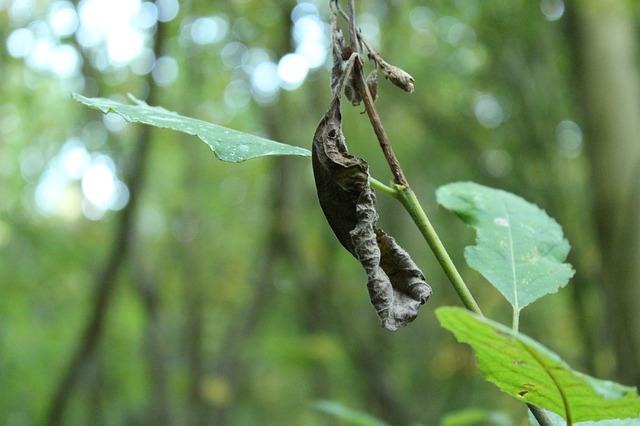When it comes to weed control, many homeowners and gardeners turn to salt as a natural and affordable solution. But does salt actually kill weeds permanently? In this article, we will explore the effectiveness of salt as a weed killer and whether or not it provides a long-term solution to weed control.
Salt has been used as a weed killer for centuries, and for good reason. It is a natural and inexpensive option that is readily available in most households. However, while salt can certainly kill weeds, the question remains whether or not it provides a permanent solution. In this article, we will examine the science behind salt as a weed killer and determine whether or not it is a viable long-term solution for weed control.
Understanding Weeds and Their Growth
Weeds are unwanted plants that grow in places where they are not wanted. They can be a nuisance in gardens, fields, and other areas where plants are grown. Weeds can be classified as either annual or perennial, depending on their life cycle. Annual weeds complete their life cycle in one year, while perennial weeds can live for several years.
Weeds can grow from seeds or from underground rhizomes, which are stems that grow horizontally underground. When seeds germinate, they send out roots to absorb water and nutrients from the soil. As the plant grows, it produces leaves and stems that allow it to photosynthesize and produce energy.
Perennial weeds can be particularly difficult to control because they have underground rhizomes that allow them to survive from year to year. Even if the above-ground portion of the plant is removed, the roots and rhizomes can continue to grow and produce new shoots.
The growth of weeds can be influenced by a number of factors, including soil type, moisture levels, and the presence of other plants. Weeds can compete with other plants for water, nutrients, and sunlight, which can reduce the growth and productivity of crops and other desired plants.
How Salt Affects Weeds
When it comes to killing weeds, salt can be a useful tool. However, it’s important to understand how salt affects weeds to use it effectively. Here’s what we know:
- Salt kills weeds by dehydrating them. When salt comes into contact with a plant’s foliage or leaves, it disrupts the plant’s water balance, causing it to lose water and eventually die.
- Sodium chloride, also known as table salt, is the most common type of salt used to kill weeds. However, other salts such as calcium chloride and magnesium sulfate can also be effective.
- While salt can be an effective weed killer, it’s important to use it carefully. Salt can be toxic to plants in high concentrations, and it can also harm the soil and other plants in the area.
- When using salt to kill weeds, it’s important to apply it directly to the weeds and avoid getting it on other plants. It’s also important to use the right concentration of salt and to water the area thoroughly after applying salt to help dilute it and prevent it from harming other plants.
Overall, salt can be an effective tool for killing weeds, but it should be used with caution. By understanding how salt affects weeds and using it carefully, we can use salt to control weeds without harming other plants or the soil.
Application Methods of Salt for Weed Control
When it comes to using salt for weed control, there are a few different application methods that can be used. Below, we’ll discuss some of the most common methods and provide tips for using salt effectively.
Using Salt to Kill Weeds
First and foremost, it’s important to understand that salt is a powerful herbicide and can kill most types of weeds. However, it’s also important to use salt carefully and selectively, as it can also harm desirable plants and damage soil quality if used improperly.
Water and Vinegar
One common method for using salt to kill weeds is to mix it with water and vinegar. This mixture can be sprayed directly onto weeds using a spray bottle or other applicator. The vinegar helps to break down the weeds’ cell walls, while the salt dehydrates them and prevents them from regrowing.
Ratio and Dish Soap
To make this mixture, you’ll need to mix 1 cup of salt, 1 gallon of vinegar, and 1 tablespoon of dish soap. The dish soap helps the mixture stick to the weeds and ensures that it’s absorbed effectively.
Table Salt
Another option is to simply sprinkle table salt directly onto weeds. This method is best for spot-treating individual weeds rather than large areas, as it can be difficult to control the amount of salt that’s applied.
Spray Bottle
If you’re using a spray bottle to apply salt, it’s important to make sure that the nozzle is set to a fine mist rather than a strong stream. This will help to ensure that the salt is distributed evenly and doesn’t damage nearby plants.
Solid Rock Salt Application
Finally, some people choose to use solid rock salt for weed control. This method involves applying large chunks of salt directly to the soil around the base of the weed. Over time, the salt will leach into the soil and prevent the weed from regrowing.
How to Use Salt to Kill Weeds
No matter which method you choose, it’s important to follow these tips to ensure that you’re using salt safely and effectively:
- Use salt selectively and avoid applying it to areas where desirable plants are growing.
- Use salt sparingly, as it can damage soil quality and harm nearby plants if used in excess.
- Always wear gloves and protective clothing when handling salt or herbicides.
- Avoid using salt near water sources or on slopes, as it can leach into the water supply and cause damage downstream.
- Monitor the area regularly for regrowth and reapply salt as needed to prevent weeds from returning.
By following these tips and using salt carefully and selectively, you can effectively control weeds without harming desirable plants or damaging soil quality.
The Role of Other Ingredients
When it comes to using salt as a weed killer, many people wonder if adding other ingredients can make the solution more effective. Some common additives include vinegar, dish soap, and surfactants.
Vinegar, particularly white vinegar, is often used in conjunction with salt as a weed killer. Vinegar contains acetic acid, which can help to break down the plant’s cell walls and kill it. However, vinegar is not a long-term solution and may not be effective for killing weeds permanently.
Dish soap or soap can also be added to the salt solution to help it stick to the weeds and penetrate the plant’s surface more effectively. This can increase the effectiveness of the solution, but it is important to use a mild soap and not to add too much, as this can harm the environment.
Surfactants, such as magnesium sulfate, can also be added to the salt solution to improve its effectiveness. Surfactants help the solution to spread more evenly across the plant’s surface and penetrate the plant more effectively. However, it is important to use surfactants carefully and not to add too much, as this can cause harm to the environment.
Overall, while adding other ingredients to a salt solution can improve its effectiveness, it is important to use them carefully and not to rely on them as a long-term solution for weed control.
Effectiveness of Salt as a Weed Killer
When it comes to weed control, many people turn to chemical herbicides. However, there are also natural alternatives, such as salt. But does salt kill weeds permanently? Let’s take a look at the effectiveness of salt as a weed killer.
Salt is a non-selective weed killer, meaning it will kill any plant it comes into contact with. It works by dehydrating the plant, causing it to wither and die. While salt can be effective at killing weeds, it is important to note that it can also harm other plants and can remain in the soil for a long time, making it difficult to grow new plants in the same area.
The effectiveness of salt as a weed killer depends on several factors, including the concentration of salt used, the type of weed being targeted, and the weather conditions. In general, a higher concentration of salt will be more effective at killing weeds, but it can also be more harmful to the soil and surrounding plants.
Salt can be applied in several ways, including as a spray or as a solution mixed with water. When using salt as a weed killer, it is important to apply it directly to the plant and to avoid getting it on any surrounding plants or soil. It is also important to apply salt on a dry, sunny day to ensure that it can effectively dehydrate the plant.
In conclusion, salt can be an effective non-selective weed killer, but it should be used with caution. It can harm other plants and remain in the soil for a long time, making it difficult to grow new plants in the same area. If you do decide to use salt as a weed killer, be sure to follow the instructions carefully and apply it only to the plants you want to kill.
Impact of Salt on Surrounding Environment
When using salt to kill weeds, it is essential to consider the impact it may have on the surrounding environment. While salt can be an effective weed killer, it can also have adverse effects on soil, water, plants, and other living organisms.
Soil: When salt is applied to soil, it can accumulate over time and increase the soil’s salinity level. This can result in soil degradation, making it difficult for plants to grow. High soil salinity can also have significant impacts on nutrient cycling, as changes may be observed in the soil’s chemical and biological properties. It is essential to note that the severity of environmental impacts of road deicing salt (also known as sodium chloride) depends on the concentration of salt in the soil.
Water: Salt can leach into the surrounding water bodies, affecting the water quality and aquatic life. High salt concentrations in immediate proximity to salted surfaces can cause damage to aquatic plants and animals. Moreover, salt concentration and composition vary naturally in different water bodies, which makes it challenging to predict the impact of salt on the environment.
Plants: Salt can have a detrimental effect on the growth and survival of plants. High salt concentrations in soil can cause plants to wilt, and in some cases, die. There are also halophytic plants that are not naturally found in salt-enriched regions, but they can tolerate high salt concentrations. However, these plants are not suitable for all environments and may not be the best solution for weed control.
Surrounding Plants: Salt can also have an impact on surrounding plants, including those that are desirable. Salt can leach into the soil and affect the soil’s chemical and biological properties, making it difficult for other plants to grow. It is crucial to consider the proximity of desirable plants to the area being treated with salt.
Microorganisms and Bacteria: High salt concentrations can also affect microorganisms and bacteria in the soil, which play a crucial role in nutrient cycling. Soil microorganisms are responsible for breaking down organic matter and releasing nutrients that are essential for plant growth. High salt concentrations can reduce the number and diversity of microorganisms, which can lead to soil degradation.
In conclusion, while salt can be an effective weed killer, it is essential to consider the impact it may have on the surrounding environment. It is crucial to use salt in moderation and ensure that it does not harm desirable plants, soil, water, or other living organisms.
Using Salt in Different Areas
Salt can be an effective way to kill weeds in various areas, including gardens, patios, driveways, and rocky areas. However, it’s important to use salt carefully and in the right amounts to avoid harming other plants and damaging surfaces.
When using salt in a garden, it’s important to avoid getting salt on other plants, as it can harm or kill them. It’s also important to use salt sparingly, as too much salt can build up in the soil and harm the overall health of the garden. Instead, sprinkle a small amount of salt directly on the weeds, making sure to cover the entire plant.
For patios, driveways, and other hard surfaces, salt can be an effective way to kill weeds that grow in cracks and crevices. Mix salt with water to create a solution, and then pour it directly onto the weeds. Be careful not to pour too much salt solution, as it can damage the surface and cause discoloration.
Rock salt can be used to kill weeds on lawns, but it should be used sparingly and with caution. Too much rock salt can harm the grass and other plants in the lawn. Instead, sprinkle a small amount of rock salt directly on the weeds, making sure to cover the entire plant.
When using salt on walkway bricks, walkways, gravel, and pavements, it’s important to avoid getting salt on surrounding plants and surfaces. Use a small amount of salt directly on the weeds, making sure to cover the entire plant.
In rocky areas, salt can be an effective way to kill weeds that grow between rocks and crevices. Sprinkle a small amount of salt directly on the weeds, making sure to cover the entire plant.
Overall, salt can be a useful tool for killing weeds in various areas. However, it’s important to use it carefully and in the right amounts to avoid harming other plants and surfaces.
Alternatives and Precautions
When it comes to controlling weeds, there are alternatives to using salt that can be more eco-friendly and non-toxic. Using herbicides is a common way to control weeds, but it’s important to be careful when using them and follow the instructions on the label.
One option is to use organic herbicides, which are made from natural ingredients and are non-toxic. These types of herbicides can be effective in controlling weeds, but they may not be as strong as chemical herbicides.
Another alternative to using salt is to prevent weeds from growing in the first place. This can be done by using mulch or landscape fabric to cover the soil and prevent weed seeds from germinating. It’s important to note that these methods may not be effective in controlling existing weeds, but they can be a great way to prevent future weed growth.
If you do decide to use salt as a weed control method, it’s important to be cautious and use it sparingly. Salt is a non-selective herbicide, which means it will kill any plant it comes into contact with, not just weeds. This can be harmful to desirable plants and can damage the soil.
To prevent damage to desirable plants, it’s important to apply salt only to the areas where weeds are present and to avoid getting salt on nearby plants. It’s also important to note that salt can remain in the soil for a long time, so it’s important to use it sparingly and only when necessary.
In conclusion, there are alternatives to using salt as a weed control method that can be more eco-friendly and non-toxic. If you do decide to use salt, it’s important to be cautious and use it sparingly to prevent damage to desirable plants and the soil.
Case Studies and References
We found several case studies and references that provide insights into the effectiveness of salt in killing weeds permanently.
According to a study by North Dakota State University, salt can be an effective herbicide for controlling weeds, including perennial weeds. However, the study also notes that the effectiveness of salt in killing weeds depends on several factors, such as the type of weed, the concentration of salt, and the timing of application. The study recommends using a salt concentration of at least 20% to achieve the best results.
Another study by the University of Massachusetts Amherst found that salt can be used to control common reed (Phragmites australis), a weed that is difficult to eradicate. The study used a 25% salt solution to kill the reeds and reported a success rate of 95-98%. The study also noted that the use of salt can have negative effects on other plants and recommended using it only in areas where other vegetation is not desired.
A study by the University of Illinois at Urbana-Champaign examined the use of salt to control weeds in agricultural fields. The study found that salt can be an effective alternative to traditional herbicides, especially in areas with high weed pressure. However, the study also noted that salt can accumulate in the soil and cause damage to crops, and recommended using it judiciously.
In addition to these case studies, several references also support the use of salt as a weed killer. For example, a review article in the Journal of Agricultural and Food Chemistry notes that salt can be used to control weeds in organic farming systems. The article recommends using salt in combination with other cultural practices, such as crop rotation and cover cropping, to achieve the best results.
Overall, the available evidence suggests that salt can be an effective herbicide for controlling weeds permanently. However, the use of salt requires careful consideration of several factors, including the type of weed, the concentration of salt, and the potential impact on other plants and the environment.
Frequently Asked Questions
Will rock salt permanently kill weeds?
Rock salt can effectively kill weeds, but it may not be a permanent solution. It can damage the soil and make it difficult for plants to grow in the future. Additionally, some weeds may be able to regrow from their roots, even if the top of the plant is killed.
How effective is rock salt for killing weeds?
Rock salt can be effective at killing weeds, especially if it is applied directly to the plant or its roots. However, it can also harm other plants in the area and damage the soil. It is important to use caution when using rock salt as a weed killer.
Can water softener salt be used to kill weeds?
Water softener salt is not recommended for use as a weed killer. It can contain additives that are harmful to plants and may not be effective at killing weeds.
What is the best type of salt for killing weeds?
The best type of salt for killing weeds is table salt or rock salt. However, it is important to use it carefully to avoid damaging other plants and the soil.
How long will salt keep weeds from growing back?
The length of time that salt will keep weeds from growing back depends on a variety of factors, including the type of salt used, the amount applied, and the type of weed. In general, salt can keep weeds from growing back for several weeks or even months.
Is Epsom salt an effective weed killer?
Epsom salt is not an effective weed killer. While it can be used as a fertilizer for some plants, it does not have the properties necessary to kill weeds.
References
- Bryant, R. B., & Connelly, M. (2019). The impact of salts on plants and how to reduce plant injury from winter salt. University of Massachusetts Amherst Center for Agriculture, Food, and the Environment. Retrieved from https://ag.umass.edu/landscape/fact-sheets/impact-of-salts-on-plants-how-to-reduce-plant-injury-from-winter-salt
- Zollinger, R. K., & Stougaard, R. N. (2022). North Dakota weed control guide. North Dakota State University Extension [PDF]. Retrieved from https://www.ndsu.edu/agriculture/sites/default/files/2022-01/ND%20Weed%20Control%20Guide.pdf



